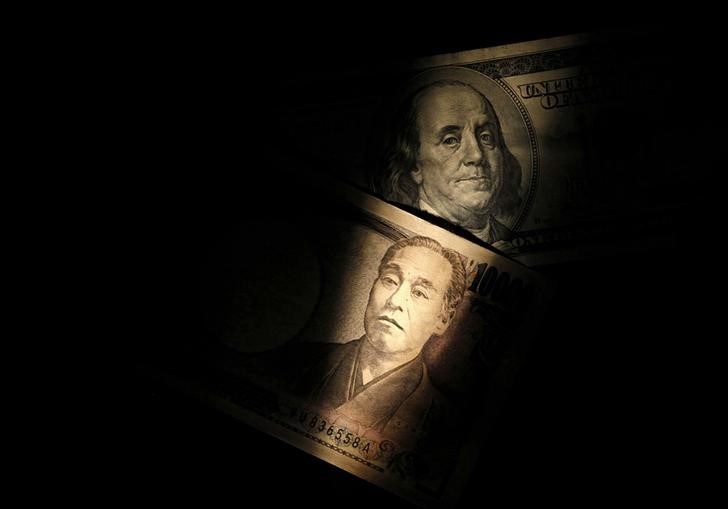By Karen Brettell
NEW YORK (Reuters) - The yen gained against the dollar on Thursday as investors feared that the Bank of Japan will not meet high expectations for a large stimulus package when it concludes its two-day meeting on Friday, and after the U.S. Federal Reserve on Wednesday stopped short of flagging a near-term rate rise.
Expectations of further stimulus in Japan has dominated trading for the past few weeks and eclipsed attention paid to the U.S. central bank’s statement on Wednesday, when the Fed was seen as indicating that a September rate increase was possible, but not necessarily likely.
“Everybody is waiting for the big marquee event of the week, which is the BOJ announcement tomorrow, to see exactly how large of a stimulus package they are going to put out,” said Boris Schlossberg, managing director of FX strategy at BK Asset Management in New York.
Also, “the theme overnight was markets' basic disappointment with the FOMC statement,” Schlossberg said.
Concerns about volatility around the BOJ’s announcement has sent the price of hedging against big swings in the dollar/yen exchange rate over the next 24 hours above 50 percent for the first time since late 2008.
"There are wide expectations for some action from the BOJ tomorrow, but there's huge variance around those expectations," said Societe Generale (PA:SOGN) currency strategist Alvin Tan, in London.
"The baseline expectation is that the BOJ will increase some asset purchases tomorrow and also perhaps cut interest rates by a small amount, perhaps by 10 basis points. The big risk is if they didn't do anything," Tan said.
The dollar fell 0.48 percent to 104.87 yen <JPY=>. The dollar index, which tracks the greenback against a basket of six major rivals, fell 0.50 percent to 96.573, after earlier dropping to a two-week low of 96.287 (DXY).
Japan's prime minister unveiled a surprisingly large 28 trillion yen ($265 billion) stimulus package on Wednesday, putting pressure on the central bank to match it with aggressive monetary easing.

Sources told Reuters on Thursday, however, that the government is planning direct fiscal spending of only 7 trillion yen, which, at just a quarter of the total package, could disappoint some market players bracing for bigger outlays given the headline figure.